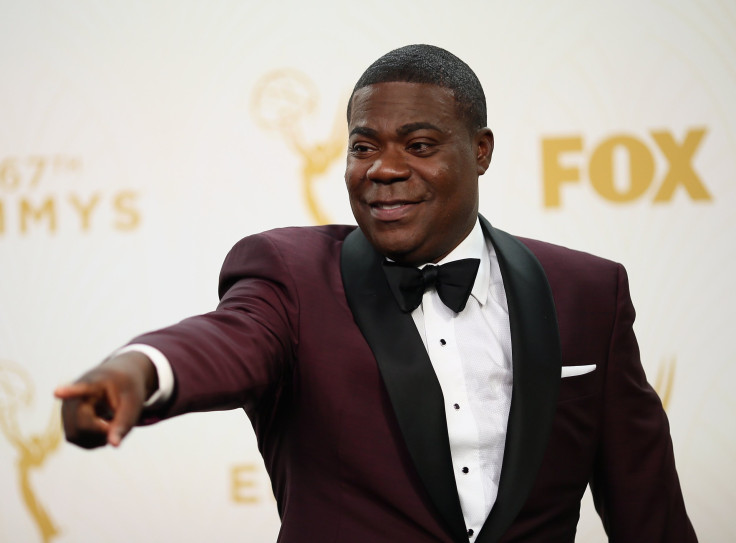'Saturday Night Live' To Host Tracy Morgan's Comedic Return Following Severe Traumatic Brain Injury

Comedian Tracy Morgan returns to Saturday Night Live (SNL) tonight to host the show alongside musical guest Demi Lovato. The show marks Morgan’s first major stint since sustaining broken bones and a severe traumatic brain injury (TBI) in a fatal crash in June 2014.
Already SNL's promos indicate Morgan will make light of his TBI. In one he shot with fellow SNL actor Kenan Thompson, Morgan says his doctor has declared him "100 percent Ebola-free." And in another promo Morgan shot with SNL actor Bobby Moynihan, he eludes to one of TBI’s common side-effects: memory loss. Moynihan says it's such an honor to have him back, to which Morgan jokingly replies, "Back where? Did I use to work here? I can't remember anymore."
"Tracy's awareness of potential deficit and his willingness to joke about them signal a higher level of cognitive function than might be expected," said Dr. Brent E. Masel, a national medical director for the Brain Injury Association of America (BIAA) and president/medical director of the Transitional Learning Center in Galveston, Texas.
But, Morgan's situation hasn't always been easy to joke about. In his first live interview since the crash, back in June with TODAY show host Matt Lauer, Morgan was emotional speaking about his injuries and the loss of his friend James "Jimmy Mack" McNair.
"The case is settled, but the pain is always going to be there for Jimmy Mack," Morgan said. "He was a close friend of mine, a comrade in comedy, a loving man…It just hurts me to see that he's gone."
Morgan was also emotional during his more recent, albeit brief appearance at this year’s Primetime Emmy Awards. He told his peers how much he missed them, and thanks to his "amazing doctors" and "supportive family," he was able to stand in front of them "on my own two feet."
"He's a lucky man," said Susan Connors, president/chief executive officer of BIAA. "He got the right dose of comprehensive rehabilitation; most Americans don't."
According to the BIAA, an estimated 2.5 million Americans sustain TBIs each year, usually the result of a fall or car accident, like in Morgan's case. But unlike Morgan, few have access to "rehabilitation of sufficient timing, scope, duration, and intensity that will allow them to recover to the maximum extent possible."
Without access to effective treatments, patients can die or experience greater levels of disability. The BIAA found that this then "creates a cycle of joblessness, homelessness, and dependence on public programs." These outcomes are worse among certain populations. For example, military personnel frequently sustain TBIs, but they have neither enough information nor money to seek necessary treatment.
"It's difficult for guys who have jobs to say, 'Hey, I have to put my whole life on hold for this,'" Sgt. 1st Class Andrew Marr told Fox News; Marr recently spearheaded a campaign to try and raise funds for soliders in need of TBI-related therapy. "We needed a way around that where we can effectively treat it and people don't have to disrupt their lives to do it."
Morgan and Marr, who also suffered severe TBI, are reminders that access to targeted treatment and cognitive training is vital. In an effort to raise awareness and increase current guidelines for adults with moderate to severe TBI, the BIAA has funded a three-year study by the Brain Injury Research Center at the Icahn School of Medicine at Mount Sinai in New York. The findings are expected in June 2017.



























